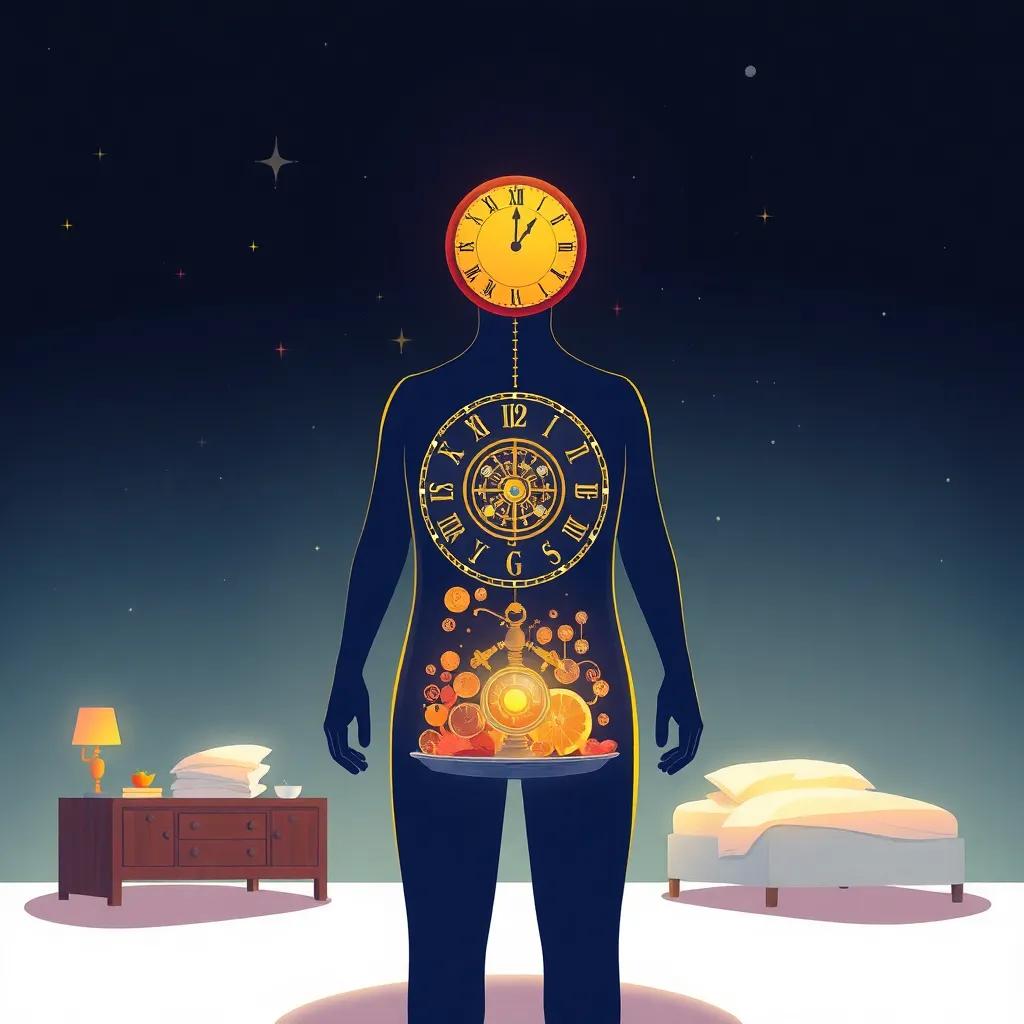Exploring the science of circadian rhythms and their impact on health, this article delves into strategies for aligning daily routines with natural biological clocks to enhance well-being.
Discover how aligning your daily habits with your body’s natural rhythms can significantly improve your health and prevent diseases.
Understanding Circadian Rhythms
Circadian rhythms are 24-hour cycles that are part of the body’s internal clock, running in the background to carry out essential functions and processes. One of the most important and well-known circadian rhythms is the sleep-wake cycle. The suprachiasmatic nucleus (SCN), a tiny region in the brain’s hypothalamus, controls these rhythms. The SCN responds to light and dark signals from the environment, which help synchronize the body’s internal clock with the external world.
The Role of Light, Food, and Activity
Light is the most significant external factor influencing circadian rhythms. Exposure to natural light during the day and darkness at night helps maintain a healthy sleep-wake cycle. Food intake and physical activity also play crucial roles. Eating at irregular times or being inactive can disrupt these rhythms, leading to various health issues.
Health Implications of Circadian Misalignment
Misalignment of circadian rhythms can lead to a host of health problems. Research has shown that disrupted circadian rhythms are linked to metabolic disorders such as obesity and diabetes, cardiovascular diseases, and mental health issues like depression and anxiety. A study published in the Journal of Clinical Endocrinology & Metabolism
found that shift workers, who often experience circadian misalignment, have a higher risk of developing these conditions.
Strategies for Synchronizing with Your Biological Clock
To optimize health, it’s essential to align daily routines with circadian rhythms. Here are some actionable strategies:
- Optimal Meal Timing: Eat meals at regular times, with the largest meal during the middle of the day when metabolism is most active.
- Light Exposure Management: Get plenty of natural light during the day and avoid bright screens before bedtime to support melatonin production.
- Sleep Hygiene Practices: Maintain a consistent sleep schedule, create a restful sleep environment, and avoid caffeine and heavy meals before bed.
Recent Research on Circadian Interventions
Recent studies have highlighted the potential of circadian interventions in clinical settings. Timed drug administration, where medications are given at specific times to align with the body’s rhythms, has shown promise in improving treatment efficacy. Light therapy, particularly for mood disorders like seasonal affective disorder (SAD), is another area of growing interest. According to a press release from the National Institutes of Health (NIH), ongoing research is exploring how these interventions can be tailored to individual circadian profiles for maximum benefit.
Conclusion: The Future of Circadian Medicine
The field of circadian medicine holds immense potential for revolutionizing preventive healthcare. By understanding and aligning with our biological clocks, we can optimize our health and reduce the risk of chronic diseases. Personalized circadian approaches, informed by individual genetic and lifestyle factors, will be key to unlocking this potential. As Dr. John O’Neill, a leading circadian biologist at the MRC Laboratory of Molecular Biology, stated in a recent announcement, Harnessing the power of our internal clocks could transform how we approach health and disease prevention.




